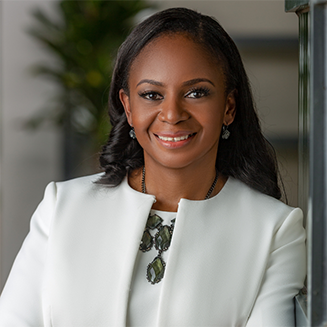The director of Heirs Holdings and founder of Avon HMO, Dr. Awele Elumelu, has called on global and local investors to view Nigeria’s economic challenges not as obstacles but as untapped goldmines full of investment potential.
Speaking at the Lagos Chamber of Commerce and Industry (LCCI) International Business Conference and Expo 2025, Dr. Elumelu emphasised that despite the country’s electricity, healthcare, and infrastructure deficits, these gaps offer some of the biggest opportunities for transformative investments.
“Nigeria is blessed with abundant natural resources, but we also face enormous unmet needs,” she said. “For investors, unmet needs are not barriers; they are business opportunities waiting to be unlocked.”
Elumelu highlighted Nigeria’s demographic advantage, pointing out that the country is Africa’s most populous nation with over 226 million people and the world’s youngest population, with a median age of just 18 years. Over 60 per cent of Nigerians are under 30, positioning the country as a vast market and future workforce.
“If properly harnessed, this demographic dividend can become a powerful engine for growth and innovation. But if ignored, it could become a significant challenge,” she warned.
Citing her experience with the Tony Elumelu Foundation, which has empowered over 24,000 African entrepreneurs, Elumelu underscored the role of private capital in driving social and economic transformation. However, she pointed out persistent hurdles such as poor electricity supply, weak infrastructure, and a $1.5 billion annual drain due to medical tourism.
“Why should Nigerians travel abroad for treatment when we can build world-class healthcare facilities here? Why export patients and lose valuable manpower when we can retain skills and create jobs?” she questioned.
Dr. Elumelu urged the government to implement enabling policies that promote investment and innovation. She also called on the private sector to take proactive steps by starting, building, and investing in critical sectors, and for global partners to engage Africa as peers rather than patrons.
“The future of Nigeria and Africa will not be written in New York, London, or Beijing, but here in Lagos, Nairobi, Accra, and Johannesburg — by those who see opportunity where others see obstacles,” she concluded.
As Nigeria grapples with infrastructure deficits and economic challenges, voices like Dr. Elumelu’s underscore the vast potential for investors willing to tap into the country’s dynamic young population and large market. The message is clear: challenges today can be the foundation for tomorrow’s growth.
Dr. Elumelu’s remarks stressed ongoing economic challenges that remain obstacles but also promise high rewards. She noted, “Poor electricity, a $1.5 billion annual drain to medical tourism, and weak infrastructure remain binding constraints that also offer huge investment potential.”
Focusing on healthcare, Dr. Elumelu questioned the need for Nigerians to seek treatment abroad: “Why should Nigerians travel abroad for treatment when we can build world-class facilities here? Why export patients, and in addition, why lose manpower when we can retain skills and create jobs?”
Citing her success empowering African entrepreneurs, she added, “We have empowered 24,000 entrepreneurs across Africa through private capital — proof that when you invest in people, lives transform.”
She called on all stakeholders to take action: “The government must create enabling policies; the private sector should start, build, innovate, and invest; and global partners should engage Africa not as patrons, but as peers.”
Dr. Elumelu said, “The future of Nigeria and Africa will not be written in New York, London or Beijing, but here in Lagos, Nairobi, Accra and Johannesburg — by those who see opportunity where others see obstacles.”



